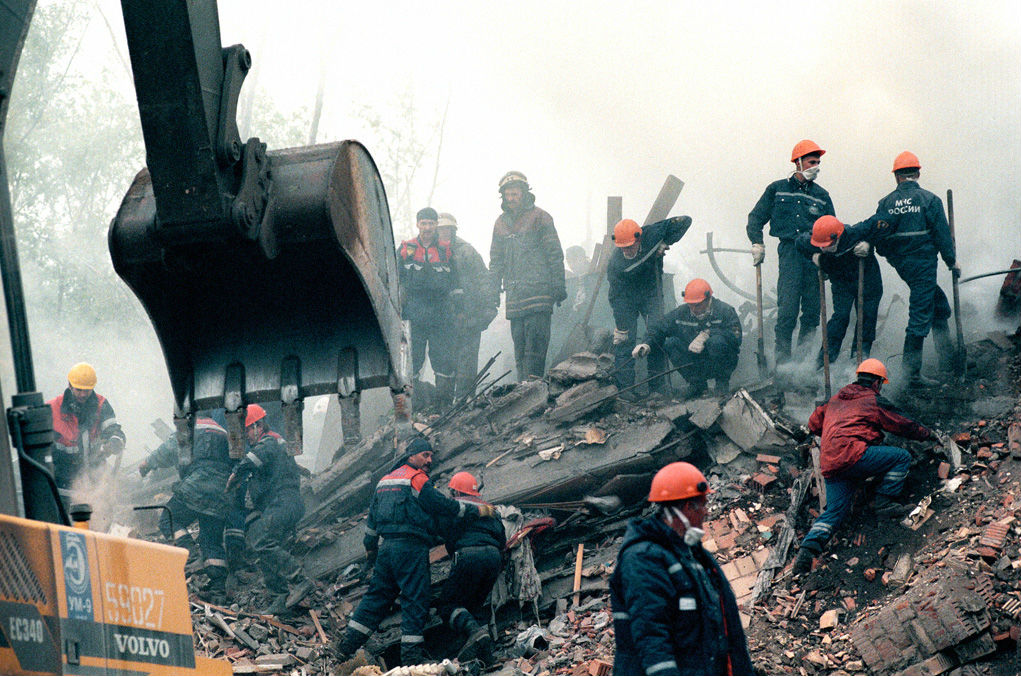 Editor’s Note: This article is an excerpt from Satter’s new book, The Less You Know, the Better You Sleep: Russia’s Road to Terrorism and Dictatorship Under Yeltsin and Putin. Satter will give a book reading at Politics & Prose in Washington on July 24 at 5 pm.
Editor’s Note: This article is an excerpt from Satter’s new book, The Less You Know, the Better You Sleep: Russia’s Road to Terrorism and Dictatorship Under Yeltsin and Putin. Satter will give a book reading at Politics & Prose in Washington on July 24 at 5 pm.
The best future for Russia would be the removal of the Putin regime in a free and fair election. But there is virtually no chance that will take place. If the Putin regime is going to be denied its goal of ruling forever, it will be because of a revolt from below so massive that the police and army will become unreliable and the ruling group will split, with at least some of those in power going over to the popular side.
Under these circumstances, it will be important to note the banners under which a democratic revolt occurs. What Russia needs is a consciousness capable of guiding a popular movement toward a commitment to universal values. Russia’s tendency to treat the individual as raw material for the realization of the state’s ambitions, well rooted in the national psychology, is what made possible the triumph of communism and then the determination to introduce capitalism without law, which led to the country’s criminalization.
To establish respect for the individual as the foundation for a new beginning, Russia must take an honest look at its past. It has failed to face the truth about the crimes of the communist regime, but what is perhaps even more urgent is for the nation to face up to the crimes committed after the fall of communism. Those include the 1993 massacre at the Ostankino television tower, the shelling of the White House, the thievery that drove the privatization process, the 1999 apartment bombings, the 2002 Moscow Theater siege, the 2004 Beslan school siege, the radiation poisoning of Alexander Litvinenko in London, and the murders of Anna Polikovskaya, Sergei Yuschenkov, Yuri Shchekochikhin, Paul Klebnikov, Natalya Estemirova, and Boris Nemtsov.
Of these crimes, the most important is the 1999 apartment bombings. The explosions in Moscow, Buinaksk, and Volgodonsk were ultimately the result of the country’s criminalization under Boris Yeltsin and the key to Putin’s rise to power. It may be argued that Yeltsin’s and Putin’s guilt in the apartment bombings is unproven. This is true, but only in the sense that the guilt of any criminal convicted in a court of law can be said to be ultimately unproven. The Putin regime never faced a court of law, but this was only because it controlled the judicial process and was in a position to seize and then hide the evidence. The totality of the circumstantial evidence—which, unlike direct evidence, is impossible to fake—presents a picture of guilt so convincing that were it presented against an individual in a criminal case, the outcome would be obvious and incontrovertible.
Insofar as the regime has blocked three attempts to conduct an independent inquiry into the apartment bombings and is implicated in the murder of persons who attempted to investigate the bombings on their own, it should be regarded as guilty of the bombings. If the authorities wish to disprove allegations of their participation in the apartment bombings, they have the option of releasing vital evidence for independent examination, particularly the bomb that was planted in the basement of the Ryazan building and was sequestered by the FSB, in direct violation of the law on state secrets.
Russia now faces a darkening future. The country’s most pressing need is a truth commission, like South Africa’s Commission on Truth and Reconciliation, that is able to examine dispassionately the crimes of post-communism and make them known to the Russian people. Many of these crimes were terrible, but an awareness of their true nature can be critical to building a new, democratic society. In the event that Russia is able to duplicate the experience of Ukraine in overthrowing a criminal regime, it will be necessary to convene a new Constituent Assembly capable of producing a constitution enshrining true separation of powers. Russia never recovered from the suppression of the Constituent Assembly elected in January 1918; in its wake, political structures in Russia have always been used as vehicles for arbitrary power.
Russia’s democratic public probably amounts to no more than 10-15 percent of the population, but the experience of the perestroika period suggests that they can carry millions of people along with them. To do that, however, they will have to face the truth about Russia’s experience of post-Soviet “democracy.” Such an exercise would allow the nation to achieve real clarity. Democratic forces would then be able to break with Russia’s tragic history and lay the basis for the country’s future. They need only focus on the value of the individual and let truth be their guide.
David Satter, a former Moscow correspondent, is a senior fellow at the Hudson Institute and a fellow of the Foreign Policy Institute of Johns Hopkins University School of Advanced International Studies (SAIS).
Image: Workers remove rubble at the site of an apartment building on Kashirskii Highway in Moscow, Russia, on September 14, 1999. Commons/RIA Novosti/Oleg Lastochkin
